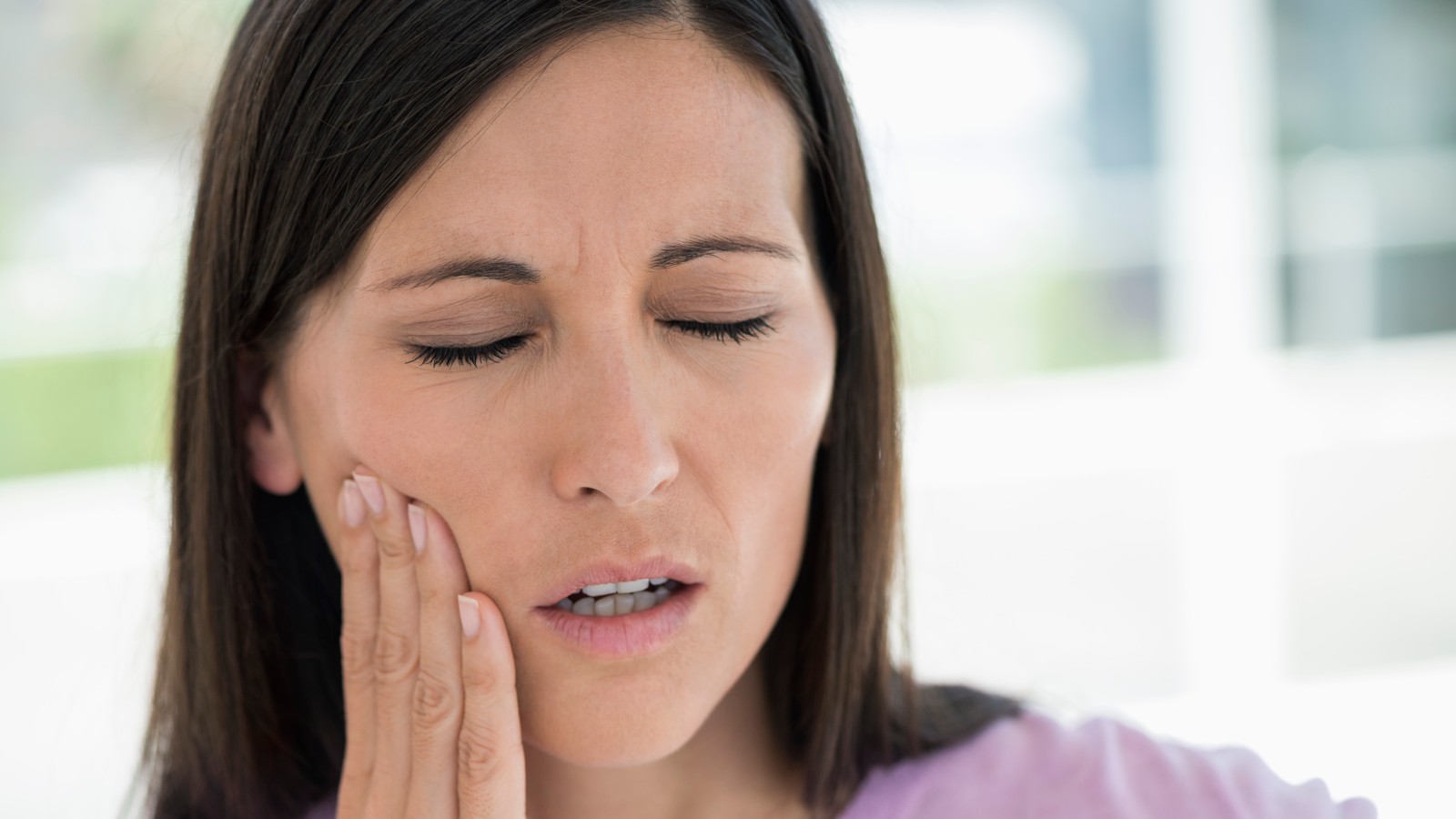The Covid-19 pandemic might be destroying our teeth, dentists reveal
Dentists have reported an increase in cracked and chipped teeth since the pandemic began


Dentists have seen an increase in chipped teeth, and it looks like the pandemic might be to blame.
The stress of lockdown has taken a toll on our wellbeing, with many people suffering from a whole host of health issues in the face of the ongoing uncertainty. From chronic anxiety to trouble sleeping, this year has done little for our smiles – and we mean that literally.
A recent survey by the American Dental Association Health Policy Institute revealed that over 66% of US dentists have identified a rise in chipped and cracked teeth in their patients since last March. The same research found that 70% of dentists have also noticed more grinding and clenching of teeth, a compulsion that often occurs unconsciously when people are sleeping.
Read more from woman&home:
• Best scented candles for a gorgeous-smelling home
• Best pillow for a comfortable, pain-free night’s sleep whether you’re a back, side or stomach snoozer
• Best yoga mats for stretching, meditation, beginners and advanced workouts
Clinically referred to as ‘bruxism’, this condition can wreak havoc on your health if left untreated. It typically manifests in jaw pain, which can extend upwards throughout the face. Sufferers therefore might not recognize it as related to their teeth and misinterpret it as sinus pain. The grinding doesn’t damage your jaw, but it does put pressure on other parts of your body. Headaches and sore neck muscles are surprisingly common symptoms of bruxism, as they are directly affected by jaw tension.
If you are suffering from this irritating condition, it’s best to address the root cause of the grinding.
Bruxism is often the result of stress and anxiety during waking hours, and therefore might be relieved by counseling or cognitive behavioral therapy. Yoga and meditation can also be greatly beneficial for relaxation and overall well-being.
Sign up to our free daily email for the latest royal and entertainment news, interesting opinion, expert advice on styling and beauty trends, and no-nonsense guides to the health and wellness questions you want answered.
For those looking for a physical solution, dentists recommend wearing a mouth guard or retainer to bed. The shield is an easy way to tackle the problem, reducing the impact of the grinding by creating a barrier between your teeth. Lighting up a smoke is also highly discouraged if you want to kick the habit. As well as carrying the obvious increased risks of cancer and stroke, cigarettes have been strongly linked to bruxism due to their nicotine and dopamine content.

Hailing from the lovely city of Dublin, Emma mainly covers the Royal Family and the entertainment world, as well as the occasional health and wellness feature. Always up for a good conversation, she has a passion for interviewing everyone from A-list celebrities to the local GP - or just about anyone who will chat to her, really.
Emma holds an MA in International Journalism from City, University of London, and a BA in English Literature from Trinity College Dublin.